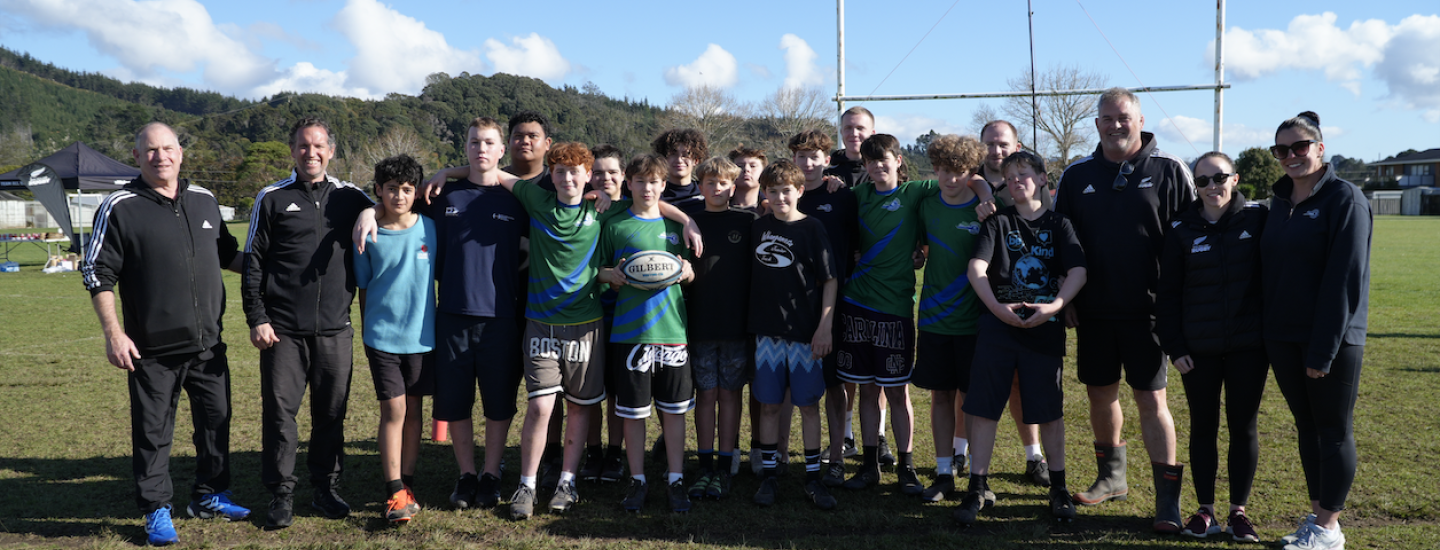T1 Rugby trialled with New Zealand Youth
28 August 2024New Zealand Rugby (NZR) have taken strides towards making rugby more appealing and accessible by holding T1 Rugby trials in the country for the first time with students at Whangamatā Area School last week.
A group of NZR community rugby staff spent three days trialling T1 with over 50 students of different ages and abilities, aimed to help NZR determine how the new form of rugby would work best for all New Zealanders.
T1 Rugby is a non-contact sport that fully reflects the unique characteristics of rugby including scrums, lineouts and the breakdown. Developed by World Rugby in partnership with other unions such as NZR, the format has an emphasis on fun, fitness and inclusion in a safe environment.
NZR Head of Rugby Participation Mike Hester said after multiple years of work it’s great to be in the final design phase of T1.
“When T1 was being developed by World Rugby we were provided with an opportunity to create a variant that suits our local context which brought us to Whangamatā with the support of Thames Valley Rugby Union. The design of New Zealand’s T1 version is really important because it captures a lot of characteristics and identities that people really care about in the game, but also expands the range of choices that they have,” Hester said.
NZR Women and Girls Rugby Manager (Northern) Sarah Mcllroy was part of the working group for T1 and said experiencing a type of rugby without the tackle has provided a lot of positive learnings.
“Trialling T1 in Whangamatā has allowed us to see how easy the game is to learn and play but the benefit of doing it over several days meant we were able to test different concepts. The non-contact aspect provides both an onramp into rugby or a legitimate form for women and girls to play, where they can learn the game at a pace they’re comfortable with,” Mcllroy said.
NZR General Manager Community Rugby Steve Lancaster said T1 Rugby is a format that will continue to drive participation by making the game more appealing and accessible.
“A key part of our Strategy is a participant-centred approach which asks us to be innovative. It’s exciting to be trialling a new non-contact format that preserves the core elements of rugby such as continuity of play, scrums, lineouts and kicking and to see how much the students enjoyed it,” Lancaster said.
Whangamatā Area School Director of Sport Jennifer Taylor said it was an awesome opportunity to be the first cohort to try T1 Rugby.
“While it was great for our students who play rugby, it was also good for students who have been apprehensive about giving rugby a go in the past. The kids enjoyed every moment which showed at break time when you’d see them pick up a rugby ball and play T1 on their own,” Taylor said.




